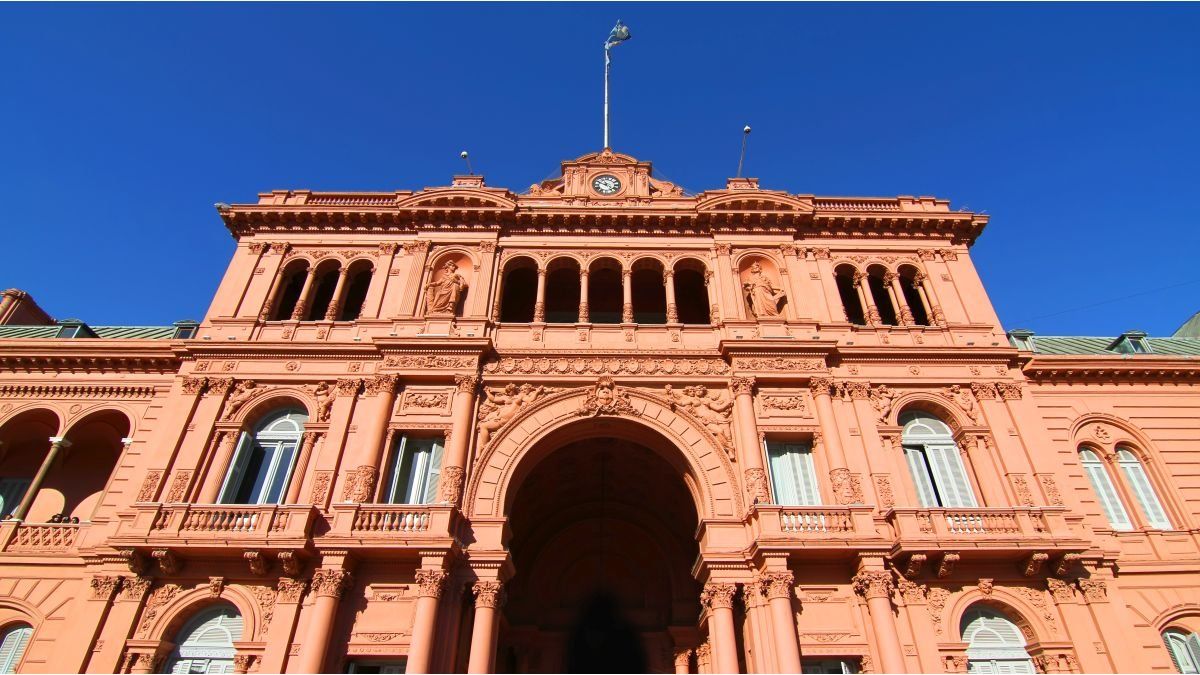By reviewing the latest events in the local economic situation, we can conclude that The objectives pursued by the administration of President Javier Milei remain oriented towards the key idea of making the State disappear.both as a regulator of the economy, and also as a guarantor of the rights of citizens, especially the most vulnerable.
A recent example of this is the official argument that supports the objective of privatizing Aerolíneas Argentinas (AA). Let us remember that, true to his attitude of ignoring the Legislative Branch, the President declared the flag airline “subject to privatization” through a DNU after Congress had eliminated it from the list of companies to be privatized included in the Bases law.
In this framework, given the union conflicts that Intercharge, a state company responsible for various ground air navigation services at airports throughout the country (assistance in the boarding and disembarkation of passengers, baggage handling, and others) Milei declared that “Intercargo is ending,” while the Government dismissed to several company employees. The unions, for their part, denounce that workers are subjected to precarious working conditions, with low salaries that have not been adjusted in recent months. The progress on this company occurs after it was subject to privatization in the Bases law.
Hence it is an ideological question. I continue to maintain that public companies have to be understood from a comprehensive vision and that comprehensiveness does not exclude efficiency. The public investment that its operation requires returns to society in many ways, including through taxes collected from the increase in economic activity that the provision of its services causes. In the case of Airlines, it plays a crucial role for the connectivity of a federal country with an impact on local economic development, specifically reaching several cities where no other airline reaches. What would happen to the economies of those localities if they were unable to trade and transport passengers by air? Doesn’t that cost/benefit count?
The conception that the current Government has about the role of the State is the antipodes of what was debated these days in the Sixth Meeting of the Board of Directors of the Regional Conference on Social Development of ECLAC. In one of the documents presented, “Reducing inequality and moving towards inclusive social development”, it is highlighted that “the function of social protection as a public policy is essential, since its objective is to guarantee income levels that allow the population to escape poverty and protect themselves from income-related shocks, increase their level of well-being, determine the demand for those services that allow them to exercise their rights in areas such as health, education or housing and ensure access to these, as well as promote the creation of decent work.”
As we have mentioned on other occasions, a present State is essential to guarantee the rights of citizens, particularly in those economic and social activities to which the private sector does not reach or, if it does, its access is very onerous and leaves a large part of the population outside them. This is an ideological debate that must be faced. A cultural battle that we must fight.
At the international level, already knowing at this point the result of the elections in the United States, Many reflections can be made, but I prefer to focus on its connection with the debate raised by ECLAC.
According to the latest estimates from the IMF, the US economy is growing: +2.8% would be the variation in GDP for 2024 and the unemployment rate was reduced, reaching 4.1% in September. That same month, the lowest level of inflation since February 2021 was recorded, 2.4% year-on-year. However, as re-elected Senator Bernie Sanders, a traditional expression of progressivism in the United States, pointed out after Donald Trump’s victory: “While the very rich are doing phenomenally well, 60% of the population lives hand to mouth. “We have more income and wealth inequality than ever.”
In the British newspaper The Economist, representative of the international establishment, you can find an article referring to the United States titled “Is high inequality the price that must be paid for greater growth?” The note maintains that the aforementioned country, when compared with the group of richest nations in the world, is the most unequal in terms of income distribution.
It is evident that Kamala Harris’ campaign axes were not enough to counteract her participation in the outgoing government or the discontent of a society in which a large part of the population, who voted for the alternation, suffers from the economic and social situation.
It then highlights the importance of State intervention in key areas, as mentioned by ECLAC, through policies that attempt to reduce the large gaps between rich and poor. An approach that can hardly be found in Trump’s campaign promises.
Income distribution, inclusive social development and, I add, solidarity, are crucial principles when it comes to governing a country that cares about the well-being of the vast majority of citizens. Everything indicates that Argentina is going in the opposite direction.
National Deputy Union for the Homeland, President of the Solidarity Party
Source: Ambito
I am Pierce Boyd, a driven and ambitious professional working in the news industry. I have been writing for 24 Hours Worlds for over five years, specializing in sports section coverage. During my tenure at the publication, I have built an impressive portfolio of articles that has earned me a reputation as an experienced journalist and content creator.




